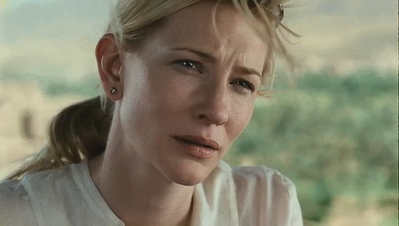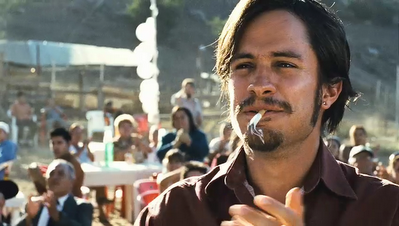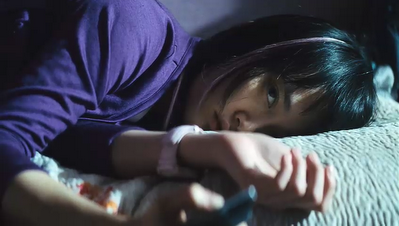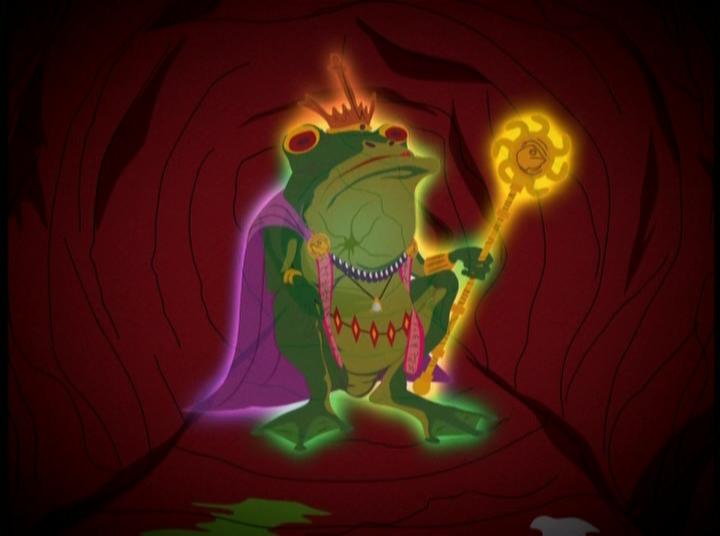After two cinematic masterpieces in a row (The Fountain and Children of Men), my friend gave me a DVD screener copy of Babel. To be honest, I HATED Iñárritu's last film, "21 Grams," despite Naomi Watts galvanic performance in that film, the stupid editing choices made it almost unbearable to watch. This is why I came into great hesitation when viewing Babel. Will it be just like the almost unwatchable "21 Grams" or like his first film (and masterpiece) "Amores Perros"? I found "Amores Perros" to be hugely enjoyable not just for entertainment's sake but for cinematic's sake as well. Despite the numerous characters and plotlines, the editing made everything flow succinctly into an explosive ending. As for Babel, you can say that I disliked it or you can say that I truly hated it. The fact is that there are moments of sheer brilliance in Babel but it's flaws tear through the film so much that most of that brilliance is diluted.

"Babel" starts in Morocco where a Moroccan hunter gives his neighbor a rifle to help kill the jackals that attack his goat herds. Two brothers are given this task but as always in movies, one of the kids always has to suck with the gun. The brother who is great with the gun tries to showoff and goes to shoot a bus. He shoots it and seconds later the bus stops and this leads to........

.....Susan (Cate Blanchett) getting shot in the shoulder. Chaos enters the film and it manages do to the same thing with the clarity of the film. There are four plotlines to the film. The Moroccan family and the rifle, Richard (Brad Pitt) and his wife in a little town in Morocco, Richard's kids being babysat by Amelia (Adriana Barraza) and their trials and tributions to get to her son's wedding with Santiago (Gael García Bernal), and finally a Japanese story about Chieko (Rinko Kikuchi), a deaf-mute who has trouble communicating that she's just lonely.

Throughout the film, Iñárritu tries to get these four stories to mesh clearly but again like "21 Grams" he fails. The problem is that there are too many stories to be told. If the film is about communication and the lack thereof, then he has already failed. There are two stories that deal with this: the Japanese story and the Moroccan family story and the connection the Japanese story has with the others is so tacked on it's unbelieveable (even the picture that connects the stories is laughable). The story with Richard and Susan fails miserably due to the fact that they have a Morrocan translator with them. How can there be any miscommunication if you have someone you can speak for you? The babysitter story goes nowhere and ends with the subject of deportation. If there is only one great story here it's about the Moroccan family. The story is edited clearly, all of the characters are strongly developed, and most of all, the subject of miscommunication is present throughout the entire plotline.

Another underlying problem with the film is the lack of realism. Iñárritu wanted to make a picture close to realism as clearly as possible but he fails with his screenwriter, Guillermo Arriaga, in constructing realistic ways in concluding the 3 of the 4 plotlines.
I'm sorry but Babel is again a failure for Iñárritu. "Amores Perros" had a personal vision from Iñárritu and I'm sad to say that it isn't in "Babel" at all. Every scene in "Amores Perros" was intense and electrifying, in "Babel" most of the scenes start with a thud and end the same way.
I find it funny that films like this are being highly regarded because they are "important". The thing is that because it is "important" they fail to see it's true flaws.


0 Comments:
Post a Comment
<< Home